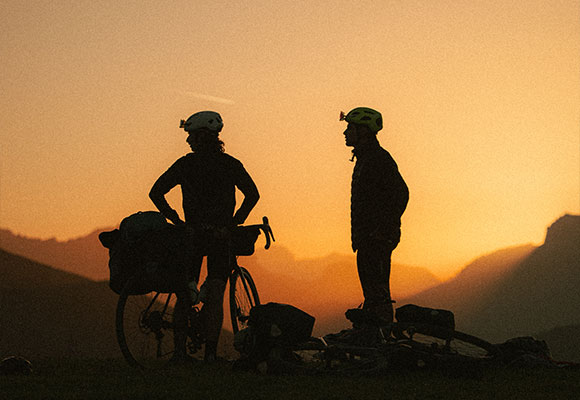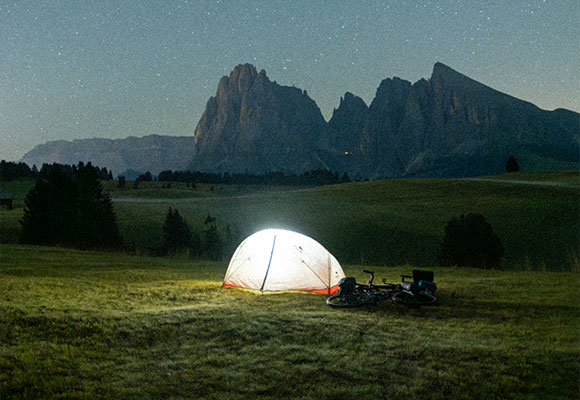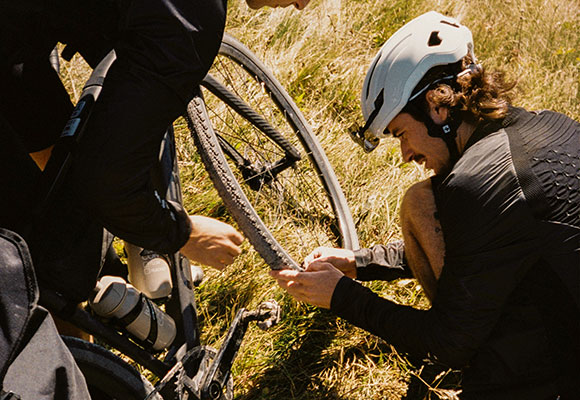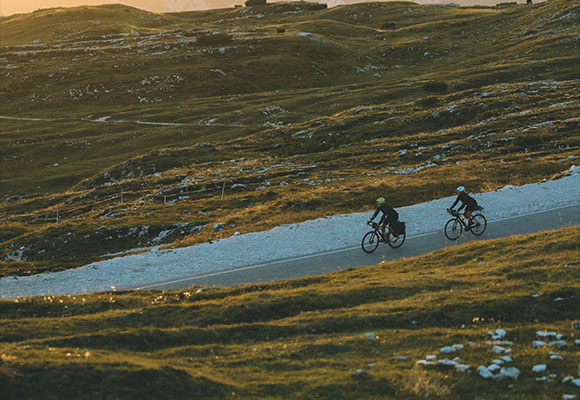Leave a Comment
Leave a Reply
Please login to post a comment.
Embarking on a bikepacking adventure presents the cyclist with a crucial decision: to go solo or join a group. Each option comes with its own set of advantages and challenges, catering to different preferences and personalities. In this exploration, we delve into the pros and cons of bikepacking solo and in a group.

Ultimate Freedom and Flexibility:
The most significant advantage of solo bikepacking is the freedom to set your own pace and make spontaneous decisions. Whether it's stopping for a breathtaking view or altering your route on a whim, the choice is entirely yours.
Introspection and Solitude:
Solo bikepacking provides an opportunity for deep introspection and a profound connection with nature. The solitude allows for self-discovery and a chance to escape the noise of everyday life.
Decision-Making Empowerment:
Being the sole decision-maker means you have complete control over your journey. From route changes to campsite selection, every decision rests in your hands.
Minimal Logistics:
Planning for one is simpler than coordinating with a group. Solo bikepackers can adapt quickly to unforeseen circumstances and changes in the itinerary without affecting others.

Safety Concerns:
Safety is a paramount concern when traveling alone. Mechanical issues, health problems, or unexpected challenges can be more daunting without the support of a group.
Loneliness:
Extended periods of solitude might lead to feelings of loneliness. Some individuals thrive on this, while others may find it emotionally challenging.
Shared Responsibilities:
Solo bikepackers carry the burden of all responsibilities – from navigation to setting up camp. There's no one to share the load or take over when needed.

Shared Experiences:
One of the most significant advantages of group bikepacking is the ability to share the experience with like-minded individuals. The camaraderie and shared memories enhance the overall journey.
Safety in Numbers:
Group travel offers increased safety. In case of emergencies, there are multiple individuals to provide assistance, whether it's fixing a flat tire or seeking help for a more significant issue.
Diverse Skill Sets:
A group often brings together individuals with diverse skills and expertise. This can be particularly beneficial when facing challenges that require a range of knowledge, from navigation skills to mechanical expertise.
Logistical Support:
Group travel allows for shared responsibilities, making logistics more manageable. Tasks like setting up camp, cooking, and navigation can be divided among the group members.

Compromise on Itinerary:
Group dynamics necessitate compromise. Decisions on routes, rest stops, and campsites often require discussion and agreement, which can slow down the decision-making process.
Dependency on Group Dynamics:
The overall experience depends on the dynamics within the group. Clashes in personalities or differences in preferences can lead to tensions that impact the enjoyment of the trip.
Less Privacy:
Group travel means less personal space. Individuals who value solitude might find it challenging to have limited privacy during the journey.

In conclusion, the choice between solo and group bikepacking ultimately depends on individual preferences, goals, and comfort levels. Some may seek the freedom and introspection that solo travel offers, while others value the shared experiences and safety net of a group. Regardless of the chosen path, both options offer unique opportunities for exploration and self-discovery on two wheels.
Please sign in first.
Sign inCreate a free account to use wishlists.
Sign in